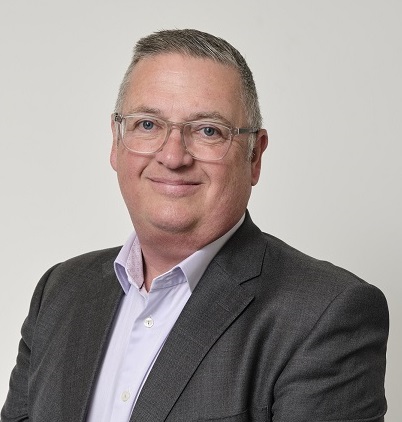InsurTechTalk: Insurtech Insights x Joshua Ofman, President, GRAIL
In celebration of GRAIL’s budding partnership with Munich Re Life and Health, Megan Kuczynski, President of Insurtech Insights, sat down with Joshua Ofman MD, President of GRAIL, to consider the intricacies of their new multi-cancer early detection test, Galleri.
Q. Josh, it was so great to catch up recently. Congratulations to GRAIL for being named on Fortune’s 2023 ‘Change the World’ list, and also for the tremendous early adoption of Galleri, the multi-cancer early detection (MCED) blood test, which has now surpassed 150,000 commercial tests completed. What does Fortune’s designation mean to you personally, and how has it affected the way the industry views GRAIL?
A. It’s an honor to be included on Fortune’s ‘Change the World’ list alongside companies who are being recognized for their measurable social impact, business results and innovation. GRAIL’s mission – to detect cancer early, when it can be cured – is an ambitious one but one where science, technology and unmet need can drive important change, as there is really nothing acceptable about the status quo in cancer detection. Over 70% of cancer deaths are caused by cancers that have no available screening today. Solving this problem is one of the most important challenges in all of healthcare. We believe making validated multi-cancer early detection (MCED) tests available as a complement to recommended screening programs will help to dramatically increase cancer detection from screening in the population, and improve public health.
Q. GRAIL has formed many partnerships with cancer and healthcare providers, collaborating with academic and community medical centers, opinion leaders, and policy and advocacy groups. From an insurance standpoint, commercial benefits include reducing healthcare costs and the longevity of the policyholder through proactive and preventative care.
In 2022, Munich Re was announced as GRAIL’s exclusive reinsurance partner, offering Galleri to the US life insurance industry. Many more insurers have signed on since then, including John Hancock and Curative. What are some metrics of success behind these partnerships? Do you find there needs to be a greater layer of policyholder education in motivating them to take the test?
A. Of course, the most important measure of success is whether we can find asymptomatic, early stage cancers in policyholders, and provide them with the opportunity for more effective and potentially curative treatments. Indeed, we have already seen some amazing examples of this. We also look at leading success metrics around our education and marketing campaigns; things like email open rates and click rates that lead to overall uptake of a program, which have consistently been very strong across a variety of partners and carriers.
In addition, we look at policyholder feedback post-Galleri (which includes metrics like NPS and CSAT scores) which are consistently above industry benchmarks by a wide margin in most cases. For education and motivation, we’ve found that if a carrier does three things well, they will get the engagement and uptake of a successful program. First, succinctly explain why you’re offering Galleri. How does Galleri bring your mission or values as a company or brand to life? Secondly, explain the unmet need in cancer screening that Galleri is attempting to fill relative to the status quo today. And thirdly, perhaps most importantly, be upfront and transparent. You will not know the results of their test, and Galleri is not being used in a way that will impact their current policy. Overcoming the ‘what’s the catch’ question has been a critical hurdle to address in order to improve policyholder confidence. They must know that they are being offered Galleri for all the right reasons, and with no strings attached.
Q. Can you expand more on the groundbreaking Galleri-Medicare study (REACH), and why Life & Health insurance carriers should pay attention?
A. The Galleri-Medicare study (REACH) is a first-of-its-kind real-world study designed to further evaluate the clinical impact of the Galleri® multi-cancer early detection (MCED) test among Medicare beneficiaries, including racial and ethnic minorities, and seniors from historically under-served communities. The Galleri-Medicare study seeks to compare up to 50,000 Medicare beneficiaries who have received usual care (plus an annual Galleri test) with a matched comparator arm of beneficiaries who receive usual care alone. Medicare will cover the costs of Galleri, alongisde related and routine items and services for study participants.
Life and health insurance carriers should pay attention. Currently, cancer types without screening recommendations represent approximately 70% of cancer deaths. Moreover, age is the most important risk factor for cancer, and there is an elderly population in Medicare where the unmet need for early cancer detection is the highest. The overall survival rate for cancer is four times higher when cancer is found before it spreads, but unfortunately, most cancers resulting in death are detected too late. In part, this is because they do not have effective screening tests.
Q. Cancer is a public health crisis. GRAIL is looking to a future where more cancers are detected through early screenings, before symptoms arise, which will ultimately save lives and reduce the costs of care.
Can you walk our readers through how the Galleri test works, and why it is the only validated multi-cancer early detection (MCED) test available for the detection of a shared cancer signal across more than 50 cancer types?
A. Single-cancer screenings play an important role in detecting 5 specific cancers today. However, nearly 70% of deaths are caused by cancers that don’t have recommended screenings. GRAIL’s Galleri test is a proactive tool in finding cancer early and can help you screen for many of the deadliest cancers that don’t have recommended screening today, such as pancreatic, esophageal, ovarian, and liver.
Cancers growing in the body shed DNA into the bloodstream, and although there are many types of cancer, the DNA fragments act like a unique “fingerprint” of cancer. If a cancer signal is identified, Galleri also accurately predicts where in the body this signal is coming from, providing guidance to your doctor on the cancer’s origin and next steps for diagnosis. All of this is available through a single blood draw, which you can now receive alongside your annual physical, at home, or at a local lab or pharmacy. Critically, Galleri has a very low false positive rate at only 0.5%, among the lowest ever seen for a screening test. Since cancer is uncommon in the population, nearly 99% of people who use Galleri will screen negative—which is exactly what you want to hear. Galleri gives you more proactive control when it comes to cancer, providing greater confidence that you’re doing as much as possible to stay healthy.
Galleri is supported by a robust clinical development program. The Galleri clinical development program consists of studies that collectively include more than 335,000 participants—and what is believed to be the largest linked datasets of genomic and clinical data in the cancer field. GRAIL’s program includes the foundational CCGA development and validation study, alongside the interventional PATHFINDER study, which together formed the basis of analytical and clinical validation. This resulted in the commercial launch of Galleri. However, there are many ongoing studies to further demonstrate the clinical impact of Galleri. These include the PATHFINDER 2 study in the US, the NHS-Galleri randomized, controlled clinical study in England, the STRIVE and SUMMIT observational studies, the REFLECTION real-world registry, and of course the Galleri-Medicare REACH study. The largest of these, the NHS-Galleri trial, has enrolled 140,000 participants with the primary objective of a reduction in late-stage cancer diagnoses, thought to be a necessary prerequisite for mortality reduction. The NHS-Galleri trial successfully completed enrollment in just over 10 months during the COVID-19 pandemic.
Galleri is recommended for all individuals over the age of 50, or those with an elevated risk of cancer. Galleri is intended to be used in addition to recommended cancer screenings such as mammography, colonoscopy, prostate-specific antigen (PSA) test, Low-dose CT in heavy smokers for lung cancer screening, or cervical cancer screening.
Q. Can you expand on GRAIL’s efforts to improve cancer early detection rates for underserved populations?
A. As part of our work to change the trajectory of cancer mortality, GRAIL builds partnerships to improve cancer detection rates for underserved populations and ensures broad and equitable access to its technology. The Galleri-Medicare study that I mentioned earlier will include racial and ethnic minorities, and seniors from historically under-served communities. Both the NHS-Galleri trial in England and the US PATHFINDER 2 study also have aggressive targets for racial, ethnic and socioeconomic diversity.
We’ve also partnered with:
- Ochsner Health in Louisiana, the largest Gulf South health system, on a multi-cancer early detection health equity demonstration three-year program to improve cancer outcomes among underserved populations and develop best practices for deployment of innovative technologies in community settings;
- Whitman Walker (WW) and the Cancer Support Community (CSC), to advance health equity in cancer screening and care with Galleri, which includes initiating The Implementation and Navigation of Cancer Liquid biopsy to Understand Diverse Patient Experiences (INCLUDE) study to leverage Whitman Walker’s community outreach expertise and the Cancer Support Community’s patient navigation tools to build our understanding how Galleri can be successfully implemented in community settings, where the opportunity to reduce inequities in cancer outcomes is the greatest. The study will recruit from Washington, DC’s diverse population that bears a high burden of unscreened cancers. the U.S. Department of Veterans Affairs and the Veterans Health Foundation to provide the Galleri test to 10,000 veterans over three years and include them in the REFLECTION study.
Q. What’s next for Joshua Ofman, MD?
A. Helping to lead the growth of GRAIL and the commercialization of a groundbreaking technology like Galleri has been remarkable for me. Changing the paradigm of cancer detection is not going to be easy. It will take time, incredible effort, and fortitude. Finding the best team, keeping them on the cutting edge and highly motivated is what is going to make this happen.
I’ll be helping to lead this company through the next stage of its evolution, preparing for FDA approval and broad reimbursement, as well as achieving global scale. Doing all I can to get this cutting edge technology to people around the world, helping to address the disparities in cancer care and to bend the cancer mortality curve, will be the capstone of my career.
Joshua J. Ofman, MD, MSHS, is the President at GRAIL. Prior to joining GRAIL in 2019, Josh spent 16 years at Amgen, where he held various roles, most recently Senior Vice President, Global Value, Access and Policy. Prior to that, Josh was a faculty member in the Department of Medicine and Health Services Research at the University of California, Los Angeles (UCLA) School of Medicine, Cedars-Sinai Medical Center, as well as Senior Vice President of Zynx Health Inc., a subsidiary of Cerner Corp.
Josh currently serves on the Board of Directors of the Precision Medicine Coalition and has previously served on the Board of Directors of Cell BT Inc, a biotechnology company developing CAR-T cell therapeutics. Josh holds a BA in history and philosophy of science from the University of California, Berkeley, and an MD from the University of California, Irvine, School of Medicine. Josh also has an MSHS from the UCLA School of Public Health.



